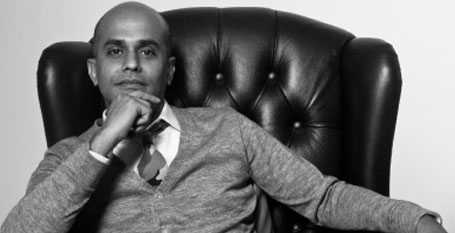Tell us about your earlier years before your political career?
I was born in 1970 and grew up in Seletar Hills, Singapore, where my family still lives. The Society of St Vincent de Paul welfare mission was set up in the kampung which had grown around the nearby airbase, and I was named after the patron saint by my Catholic parents. Despite living a comfortable middle-class life, growing up there gave me an intimation of the poverty and discrimination faced by low-income families.
I have 2 older sisters. Father was a teacher, who worked in the education ministry’s headquarters and later became a school principal. He was quite a stern parent, like his before him. At home he laid down the rules which you were expected to simply follow. He was never a man who needed to raise his voice or hand to us, as his words were sufficient to keep us all in line.
Church was very much a part of our lives, and both my parents were actively involved. Significantly, that was where I can trace the origins of an awareness of my difference. A friend of mine and I had our first Holy Communion and became altar boys together. When he and the other boys played soccer, I would wander off and occupy myself with helping the sacristan on his care-taker duties around the church. The other boys had a shared camaraderie, yet I didn’t feel leave out. I had opted not to play soccer with them, and felt no shame about it. From then on I knew I was different. But I couldn’t yet quite put my finger on it.
You were accused by your political opponents of having a “gay agenda” during the elections. In 2013, on the eve of Pink Dot, you decided to publicly come out as a gay man. When and how did you first realise you were gay?
There was a gradual process of coming out to myself; no one else knew what was going on at the time. In secondary school, I had already learnt to be “straight-acting”. It meant walking in a particular way, and negotiating soccer. Acknowledging that I wasn’t very good at it, I still played the game and asked to put in defence position. I was also learning to negotiate homophobia – being called names – because I wanted to belong and be part of the “in group”. I didn’t have the awareness about being proud to be gay, as that only came much later.
When I went to England to study social work, there were 4 classmates – 2 men and 2 women - who were also gay. They came out on the first day of the course when they introduced themselves. It was affirming for me to see confident, well-adjusted and openly-gay people who were comfortable with themselves.
I came out to my parents in 1994. It was my first summer back in Singapore. One evening after dinner I sat them down on the verandah and told them. My father didn’t say anything. Looking back, I was hurt by that. I had built up this courage to tell them. Now in hindsight I realise that he was a man of his generation, social class and religion, and wouldn’t have responded otherwise. My mother was much better, and asked me lots of questions. When my sister came home that night, we sat and talked some more. We had quite a good conversation.
You had been living in England 16 years, before coming back to Singapore in 2009. How did you decide to return after being away for so many years? What has stayed constant and kept you going?
In May 2009, an elderly uncle in London died of illness. He had lived in England for 50 years, and like me was in his twenties when he first arrived. When he died, he had a nice job, house, family and a hobby refurbishing vintage Rovers. The facts of his life were mundane, and it struck me that my life might soon become like his. By then I already had my own flat in London, a good job, and a comfortable middle-class existence. I was 39 years old, and it all came together for me - that sense of wanting to do something different with my life.
One spring morning, while on my way to work I decided that I was going to leave England for good. After spending some time with my best friends there – who happened to be 3 ex-boyfriends and a former boss – I was back in Singapore by July. I had no idea what I was going to do.
I need meaning in my life, which is why I went into social work as a career in England. Back in Singapore, I took on the job with TWC2 and joined the SDP as a member. The things that keep me going are varied: the people, the contribution I feel I’m making, the learning, the challenges, and the potential to effect change within each context. When these disappear, I feel an urge to move on to find meaning elsewhere.
This article was written by Leow Yangfa and originally published by Element Magazine.

